|
Printables |
PowerPoints |
Online exercises |
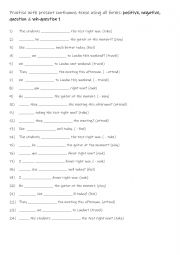
|
A1-A1+ Practise with present continuous tense using all forms positive, negative, question & question word with question 1
Learning the Present Continuous Tense in all its forms (positive, negative, question, and question word) is vital for effective communication in English. It enables students to describe actions happening at the moment, express temporary situations, and discuss future arrangements. Mastering the tense also allows for the formation of questions, help...
Level: elementary
Age: 8-100
Type:
Downloads: 119
|
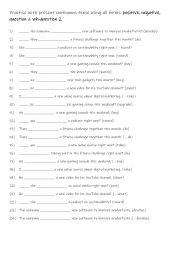
|
A1-A1+ Practise with present continuous tense using all forms positive, negative, question & wh-question 2
Each form is used 6 times! Answers on page 2.
Level: elementary
Age: 8-100
Type:
Downloads: 108
|
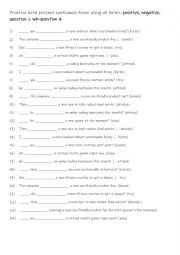
|
A1-A1+ Practise with present continuous tense using all forms positive, negative, question & wh-question 4
Each form is used 6 times! Answers on page 2.
Level: elementary
Age: 7-100
Type:
Downloads: 151
|
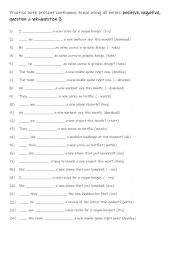
|
A1-A1+ Practise with present continuous tense using all forms positive, negative, question & wh-question 3
Each form is used 6 times! Answers on page 2.
Level: elementary
Age: 7-100
Type:
Downloads: 131
|
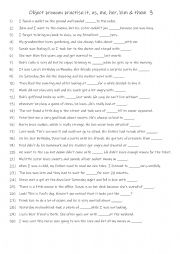
|
A1-A2 Object pronoun practise it, us, me, her, him & them 3
Practising object pronouns like it, us, me, her, him, and them is essential for building clear and natural sentences in English. Object pronouns replace nouns to avoid repetition and make sentences smoother, which is crucial for effective communication. By mastering these, you can better describe actions involving people and things, making everyday...
Level: elementary
Age: 8-100
Type:
Downloads: 121
|
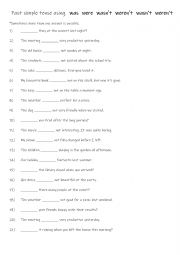
|
A1-A2 Past simple tense using: was, were , was not, were not, was not & were not
Students familiarise themselves with the past forms of verb to be. Then they read the sentences to see which form is needed to complete the sentences. Answers on page 2.
Level: elementary
Age: 8-100
Type:
Downloads: 128
|
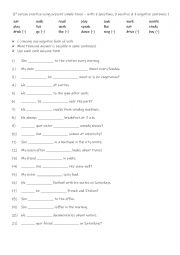
|
A1-A2 3rd person practise using present simple tense � with positive & negative sentences + questions 1
Students familiarise themselves with the 21 verbs. Then they read the sentences to see which question verb is required to complete the gap-fill. Each form is used 7 times! Answers on page 2.
Level: elementary
Age: 7-100
Type:
Downloads: 123
|
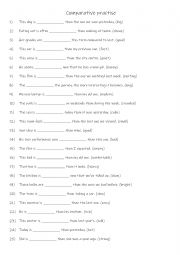
|
A1-A2 Comparative practise with 25 different adjectives
Students read the sentences and see the base form of the adj in (). Then they use the comparative form of the given adj to complete the gap-fill. Answers on page 2.
Level: elementary
Age: 8-100
Type:
Downloads: 116
|
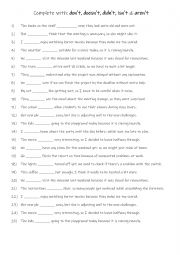
|
A1-A2 Complete with don�t, doesn�t, didn�t, isn�t & aren�t practise
Students read the sentences and complete the gap-fill with one of the following: with: don�t, doesn�t, didn�t, isn�t & aren�t. Answers on page 2
Level: elementary
Age: 8-3
Type:
Downloads: 127
|
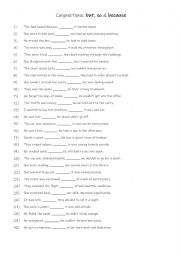
|
A1-A2 Conjunctions practise using: but, so & because
Students read the sentences and complete the gap-fill with the correct conjunction. Answers on page 2
Level: elementary
Age: 10-100
Type:
Downloads: 103
|
|
|
|
|












